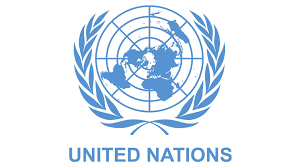The United Nations (UN) held an emergency Security Council session on Sunday to discuss Israel’s plans to reoccupy Gaza City.
The meeting was convened following Israeli Prime Minister Benjamin Netanyahu’s Security Cabinet approval of a military operation earlier, which has drawn widespread international criticism.
The Israeli Defence Forces’ plan to expand operations to capture and occupy Gaza City has sparked severe condemnation globally, with many analysts warning it could lead to the final annihilation of approximately two million Palestinian civilians living in war-ravaged conditions without adequate access to food, water, or medicine.
Since the war began in October 2023, over 60,000 lives have reportedly been lost.
A UN official warned that Israel’s plan to take control of Gaza City could trigger “another calamity” with far-reaching regional consequences.
“If these plans are implemented, they will likely trigger another calamity in Gaza, reverberating across the region and causing further forced displacement, killings, and destruction,” UN Assistant Secretary-General Miroslav Jenca told the Security Council.
The session, called by Denmark, France, Greece, the United Kingdom, and Slovenia, saw all Council members supporting the talks except the United States.
Prime Minister Netanyahu defended his plan to seize Gaza City the largest metropolitan area in the Palestinian territory calling it the “best way to end the war… speedily.”
He said the new offensive targets two remaining Hamas strongholds around the city as part of Israel’s efforts to defeat the militant group. Netanyahu insisted the campaign would be short-lived and denied plans for a full occupation of Gaza.
“Israel is talking in terms of a fairly short timetable because we want to bring the war to an end,” he said.
At a Sunday news conference, Netanyahu stated that given Hamas’ refusal to disarm, Israel has no choice but to “finish the job” and “defeat” the militant group.
He also criticized what he described as a “global campaign of lies,” claiming that Hamas’ reports of worsening humanitarian conditions in Gaza were exaggerated.
According to Netanyahu, Israel has allowed two million tons of aid into Gaza since the start of the conflict and will open “safe corridors” for essential supplies, along with new aid distribution sites in the enclave.
The UN, aid agencies, and several governments have recently urged Israel to increase deliveries of food, fuel, and medicine to prevent famine among Gaza residents.
Netanyahu also announced a directive to allow more foreign journalists to report from Gaza, reversing a prior ban.
Meanwhile, militants from Palestinian Islamic Jihad have launched missile attacks on Israeli border communities, according to statements from the group.
Its military wing, the al-Quds Brigades, claimed responsibility for firing rockets at the Nahal Oz and Sa’ad kibbutzim near the Gaza border.
The Israeli military confirmed two missiles were launched from Gaza and engaged by its air defense systems. One missile was intercepted successfully, while the other struck a cowshed in Sa’ad kibbutz.
Though Palestinian militants have fired thousands of rockets at Israel since the conflict’s outbreak nearly two years ago, such attacks have become less frequent.
Palestinian Islamic Jihad supported Hamas in the October 7, 2023 terror attacks on Israel and took Israeli citizens hostage. The group is designated a terrorist organization by Israel, the US, UK, Canada, and several other countries.














